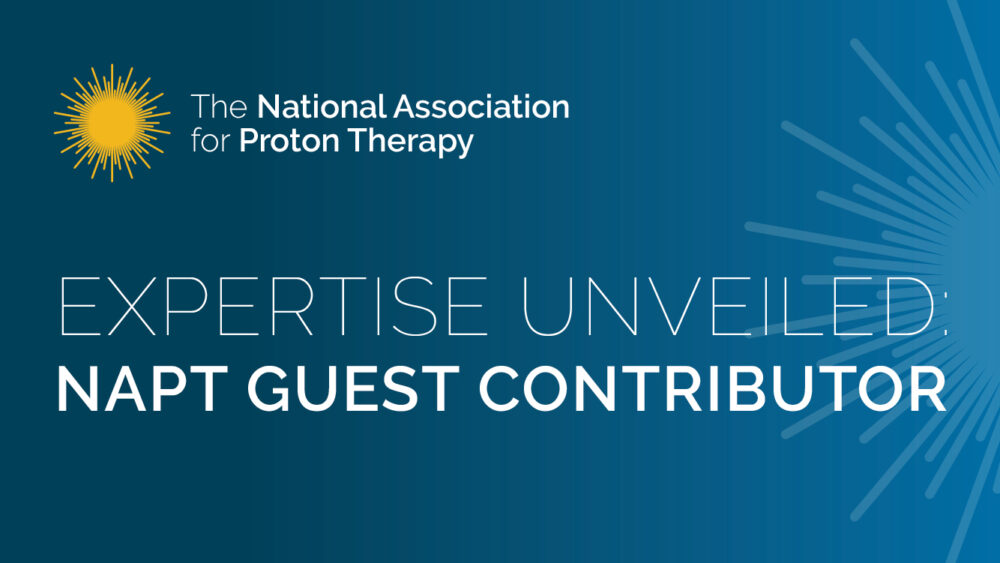 GUEST CONTRIBUTORS:
GUEST CONTRIBUTORS:
Chrissy Rubin, LCSW, Lead Social Worker
Mark Eala, LMSW, Social Worker
As oncology professionals, we know that a cancer diagnosis impacts both patients and their support network, potentially affecting their ability to maintain full-time employment, pay bills, care for family members, and overcome associated physical, mental and social burdens. Many patients experience reductions in household income and depletion of savings, triggering a vicious cycle of financial toxicity.1,2 In a 2018 study of cancer patients, 42.4% had exhausted their lifetime savings within two years of starting treatment.3 Reduced income, coupled with increased out-of-pocket costs, significantly affects compliance and adherence to treatment and may increase treatment delays, missed treatments, and receipt of prescribed medications and interventions, which can negatively impact survival.4-10
At the New York Proton Center, our social workers and clinical staff do everything they can to support our patients. However, we had no way of proactively identifying a patient’s needs or directly reducing their non-clinical burdens. We also wanted a means to involve others who expressed an interest in helping patients.
In late 2023, we were introduced to The WiTT Group by the Miami Cancer Institute (MCI). MCI had just deployed the WiTT Support RegistryTM and were excited about the platform’s ability to make the non-clinical needs of patients visible and enable donors to have transparency into how their support could directly impact patients.
Our clinical and operations teams met with WiTT to learn more about the Support Registry and its potential to assist patients with non-clinical needs and demonstrate ROI in the form of greater compliance and adherence to treatment.
We considered the following during our evaluation of the platform:
-
Ease of use for patients and the family and friends who will support them
-
Minimal internal IT requirements
-
Ability to brand the platform to ensure trust among our patients and donors
-
No income or diagnosis requirements for using the platform
-
Ability to generate unique Social Determinants of Health (SDoH) data that our staff could use to engage patients and publish research papers
-
Willingness to partner with us and use our input to continue enhancing the platform’s functionality
The WiTT Support Registry enables cancer patients to register and request financial and non-financial support from their friends and social networks.
 As a social platform that combines elements from a gift registry, crowdsourcing, and FinTech domains, the WiTT platform allows patients to ask for assistance while taking the guilt out of asking for help. Additionally, the system collects SDoH data that allows our team to identify risk factors impacting health equity and access to care.
As a social platform that combines elements from a gift registry, crowdsourcing, and FinTech domains, the WiTT platform allows patients to ask for assistance while taking the guilt out of asking for help. Additionally, the system collects SDoH data that allows our team to identify risk factors impacting health equity and access to care.
We created our own “white labeled” version of the WiTT platform and branded it to align with our mission, vision, and corporate branding. Forward Together is available to all NYPC patients through our website.
Our staff lets patients know about the Forward Together platform and, if a patient wants to make their profile public, i.e., receive funds from people they don’t know, our team verifies that the patient is receiving treatment at NYPC. In addition, donors can go to the platform and either donate to a 501c3 or give directly to patients.
 The implementation took two months, with no internal IT support. Much of the implementation was focused on branding, reviewing emails that were autogenerated by the platform to ensure they were consistent with our messaging, and to providing feedback to the WiTT team on needed configurations to ensure best use by our patients.
The implementation took two months, with no internal IT support. Much of the implementation was focused on branding, reviewing emails that were autogenerated by the platform to ensure they were consistent with our messaging, and to providing feedback to the WiTT team on needed configurations to ensure best use by our patients.
Since its launch in March 2024, the Forward Together platform has generated the following results:
-
21% reduction in missed appointments by patients using Forward Together vs. other patients – a direct financial impact to our bottom line
-
$100K+ in donations from vendors and former patients over the past 16 months
-
Greater staff satisfaction through our ability to directly help patients
-
Data is being incorporated in a research paper
The impact of Forward Together on our patients is significant, with patients experiencing reduced stress from non-clinical costs associated with treatment and resulting in fewer missed appointments and treatment delays. Please feel free to contact Jonathan Weinbach, NYPC’s CEO, to learn more about Forward Together and how we have implemented the WiTT platform.
For more information please visit: https://wittforever.com or email: members@proton-therapy.org
REFERENCES
- Carrera PM, Kantarjian HM, Blinder VS. The financial burden and distress of patients with cancer: Understanding and stepping-up action on the financial toxicity of cancer treatment. CA Cancer J Clin. 2018 Mar;68(2):153-165. doi: 10.3322/caac.21443.
- Wu VS, Shen X, de Moor J, Chino F, Klein J. Financial Toxicity in Radiation Oncology: Impact for Our Patients and for Practicing Radiation Oncologists. 2023;9(3):101419.
- Gilligan AM, Alberts DS, Roe DJ, Skrepnek GH. Death or Debt? National Estimates of Financial Toxicity in Persons with Newly-Diagnosed Cancer. Am J Med. 2018 Oct;131(10):1187-1199.e5. doi: 10.1016/j.amjmed.2018.05.020.
- DQ® Adult Treatment Editorial Board. PDQ Financial Toxicity (Financial Distress) and Cancer Treatment. Bethesda, MD: National Cancer Institute. Updated <09/20/2019>. Available at: https://www.cancer.gov/about-cancer/managing-care/track-care-costs/financial-toxicity-pdq. Accessed <08/18/2023>.
- Ju L, Bysshe T, Steinmetz E, Bruen BK. Health Reform, Medicaid expansions, and women’s cancer screening. Women’s Health Issues. 2016;26(3):256-261.
- Hussaini SMQ, Gupta A, Dusetzina SB. Financial Toxicity of Cancer Treatment. JAMA Oncol. 2022;8(5):788. doi:10.1001/jamaoncol.2021.7987
- Wright BJ, Conlin AK, Allen HL, Tsui J, Carlson MJ, Li HF. What does Medicaid expansion mean for cancer screening and prevention? Results from a randomized trial on the impacts of acquiring Medicaid coverage. Cancer. 2015;122(5):791-797. https://doi.org/10.1002/cncr.29802.
- Chow R, Hasan S, Choi JI, et al. Effect of treatment interruptions on overall survival in patients with triple-negative breast cancer. J Natl Cancer Inst. 2023;115(9):1029-1035.
- McMillan MT, Ojerholm E, Verma V, et al. Radiation Treatment Time and Overall Survival in Locally Advanced Non-small Cell Lung Cancer. Int J Radiat Oncol Biol Phys. 2017;98(5):1142-1152.
- Hasan S, Gorovets D, Lehrer E, et al. Optimal timing of radiotherapy in high risk prostate cancer: Do missed days matter? Clin Transl Radiat Oncol. 2020;26:47-54.
EXPERTISE UNVEILED: A GUEST CONTRIBUTOR SERIES
We bring together the brightest minds and most experienced professionals in the field of proton therapy. In this distinguished guest contributor series, experts share invaluable insights, breakthrough research, and real-world experiences in advancing proton therapy. Join us as we delve into the world of proton therapy, exploring its intricacies and potential through the eyes of those who know it best. Interested in becoming a contributor? Email info@proton-therapy.org for more information.




